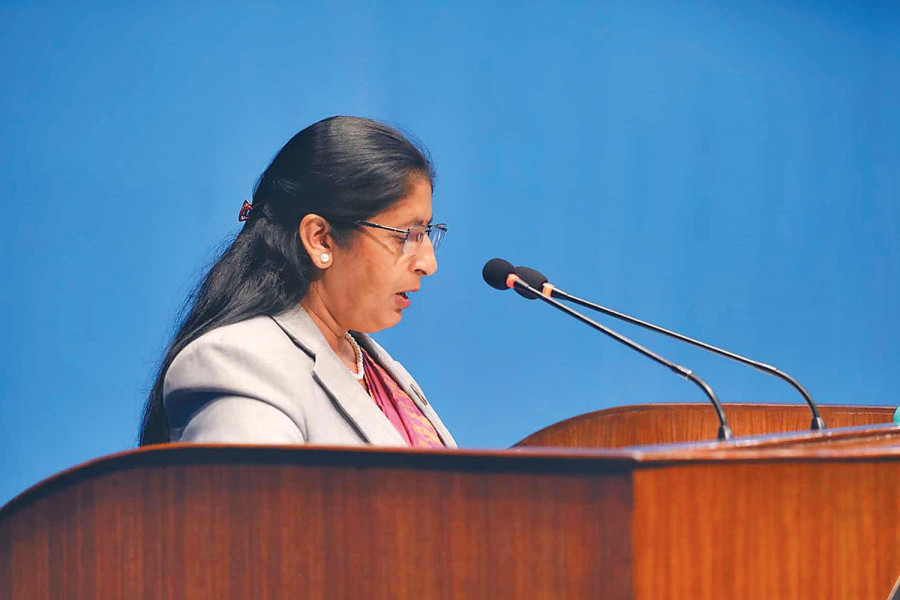Politics
Bill to amend transitional justice law lands in House
Detailed discussion will be held on the bill today before it is put to a vote in Parliament.
Post Report
The bill to amend the Enforced Disappearances Enquiry, Truth and Reconciliation Commission Act has landed in the House of Representatives amid mixed reactions from the victims and human rights activists.
Bimala Subedi, chairperson of the Law, Justice, and Human Rights Committee of the House, presented a report on the bill that was endorsed by her panel a week earlier. The committee had endorsed the bill unanimously on August 8 after considering it for over a year.
The bill will see a detailed discussion on Wednesday before it is put to a vote. As the three major parties unanimously passed the bill in the House committee, there is no barrier to its endorsement from the federal parliament.
However, not every stakeholder has accepted it.
While hailing the bill as progressive, the Conflict Victims Women National (CVWN) Network has expressed its reservations over the classification of crimes, the proposed provision of reduced sentencing and not listing war crimes and crimes against humanity as serious violations of human rights.
The bill lists rape or serious cases of sexual violence, intentional or arbitrary killing, enforced disappearances and inhumane or cruel torture as serious violations of human rights and thus non-amnestiable. Other incidents fall as human rights violations and are amnestiable. One of the provisions in the bill clears the way for reconciliation in cases other than serious violations of human rights. The attorney general cannot be forced to press ahead with a legal case in incidents of human rights violations or serious violations of human rights where there has been reconciliation or a recommendation for amnesty, according to the bill.
Except in cases of rape or serious sexual violence, there can be a reduction in the sentencing by 75 percent if the perpetrators fulfil some set criteria. Decisions on reduced penalty can be taken after examining whether the perpetrators provide information on the allegations against them, whether they cooperate with the commissions on evidence collection and whether they express remorse for their acts. Similarly, before recommending a reduction in penalty, the commissions need to evaluate whether the perpetrators have apologised to the victims and made commitments to not repeating such acts.
“Narrowing down the definition of serious violations of the human rights poses risk that the victims can be deprived of the rights to truth, justice and reparations,” reads a statement from the CVWN.
However, another group of victims united under victims and survivors of serious human rights violations have welcomed the bills saying the agreement in the bill has generated hope for justice. They, however, have demanded their participation in the mechanisms for finalising the reparations. Now the focus of the victims should be towards ensuring that the two transitional justice commissions get the right persons to lead them.
However, the Accountability Watch Committee, a rights group, has demanded the authorities concerned address serious errors in the bill before it is endorsed by the federal parliament.
All disqualified Maoist combatants including child soldiers, along with the families of security personnel who died or got injured during the insurgency, will get reparation and compensation, as per the agreement. However, the issue of child soldiers, which is considered a war crime, along with crimes against humanity and other acts of war crime is not mentioned in the agreement. The rights group has expressed its reservations about the provision as well.
Those who have followed the process closely say there is no denying that the present bill is progressive and three parties coming together has given a positive message for its conclusion.
“Now how honest the parties are towards concluding the process will be seen through what type of people get appointed to the commissions,” Chiranjibi Bhandari, assistant professor of Conflict, Peace, and Development Studies at the Tribhuvan University, told the Post. “If competent persons with higher social acceptance get to the position, they can take the process ahead finding pragmatic ways.”




 10.12°C Kathmandu
10.12°C Kathmandu














